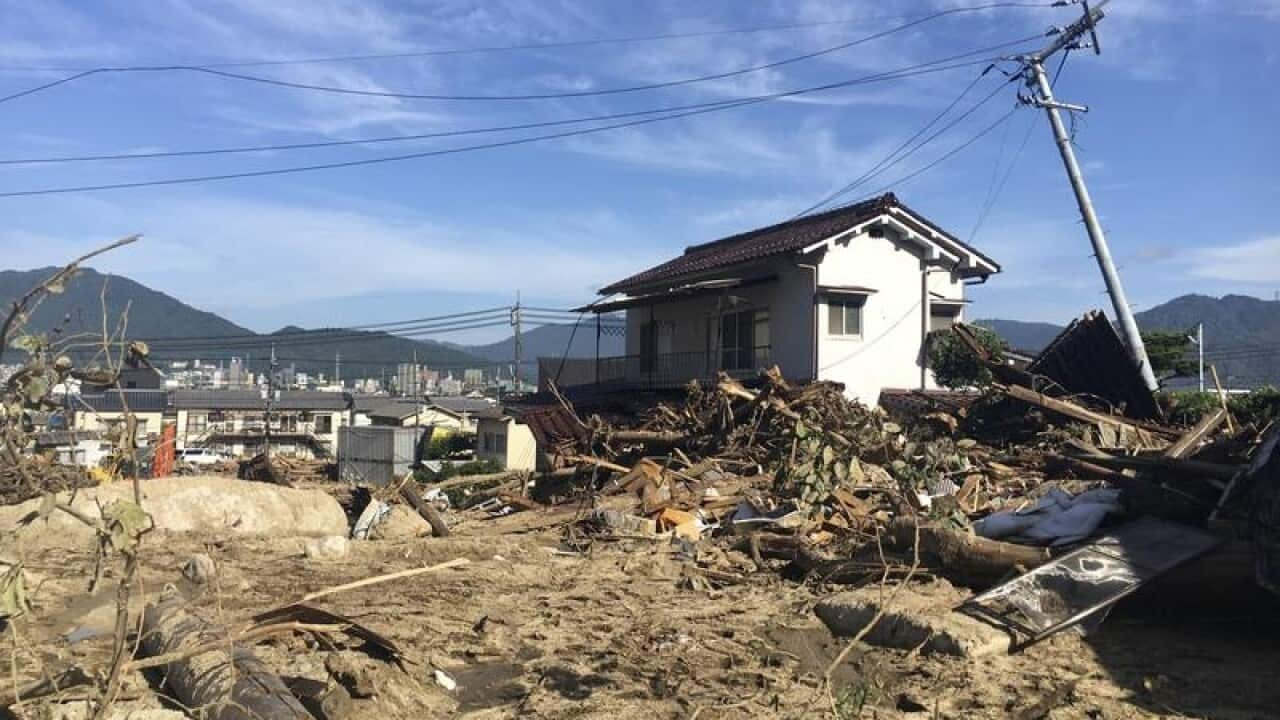Japanese Prime Minister Shinzo Abe has visited the country's flood-stricken areas as the death toll from the worst weather disaster in 36 years reached 176.
Torrential rain caused floods and triggered landslides in western Japan last week, bringing death and destruction to neighbourhoods built decades ago.
At least 176 people were killed, the government says, with dozens missing in Japan's worst weather disaster since 1982.
In Kumano, a mountainside community that was hit by a landslide last week, Ken Kirioka anxiously watched rescuers toiling through mud, sand and smashed houses to find the missing, including his 76-year-old father, Katsuharu.
"He is old and has a heart condition. I prepared myself for the worst when I heard about the landslide on Friday night," he said, pointing at a pile of mud and rubble where he said his father was buried.
"He is an old-fashioned father who is hard-headed and does not talk much," Kirioka said, adding he would stay until his father was found. "It would be too bad for him if a family member were not around."
Rescuers working under a scorching sun combed through heaps of wood and thickly caked mud in a search for bodies, helped by sniffer dogs.
With temperatures of 33 degrees Celsius or higher in the devastated areas, attention is turning to preventing heat-stroke among rescue workers and in evacuation centres where thousands of people have sought shelter.
The intensifying heat is expected to trigger thunderstorms on Wednesday, with authorities warning new landslides could be set off on mountainsides saturated with water.
After observing the damage from a helicopter flying over Okayama, one of the hardest-hit areas, Abe visited a crowded evacuation centre.
He crouched down on the floor to speak with people, many of them elderly, and asked about their health. He clasped one man's hands as they spoke.
"We'll cut through all the bureaucracy to secure the goods people need for their lives, to improve life in the evacuation centres ... and then secure temporary housing and the other things people need to rebuild their lives," he said.
Officials meanwhile, have turned to social media to warn of the additional danger of food-borne illnesses, urging people to wash their hands and take other measures against food poisoning.









